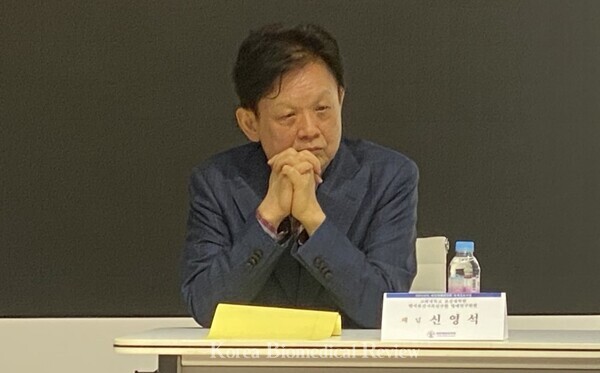A new proposal for the expansion of medical school quotas by Professor Shin Young-seok of the Korea University Graduate School of Public Health, the principal researcher who previously provided the basis for the government's plan to increase the number of medical students by 2,000, is drawing significant attention.

The core of the new proposal suggests expanding the quota by 1,000 students from the 2025 academic year, maintaining this increase for 10 years, and then re-evaluating. This approach is seen as a way to mitigate the shock compared to the government's plan to maintain a 2,000-student increase for five years and provides a basis for future discussions on potential reductions.
The proposal emerges from concerns over the government's announcement to increase the medical school quota by 2,000 students annually, amounting to a total increase of 10,000 students over five years.
Professor Shin had initially laid the groundwork for this debate through his role at the Korea Institute for Health and Social Affairs. His publication, a detailed forecast on the supply and demand of healthcare workers, predicted a considerable shortfall of doctors by 2035, estimating a deficit ranging from 9,654 to 14,631.
This projection, highlighted in his Nov. 2020 report, underscored the urgent need for action to mitigate future shortages and has since been central to the discourse on expanding medical education capacity in Korea.
The government's proposal to augment the medical school intake is seen as a direct response to Shin's findings, aiming to address the anticipated shortfall in medical personnel preemptively.
However, the ambitious plan to increase the quota by 2,000 students annually over five years has met with skepticism, including from Shin himself, who has voiced concerns over the potential ramifications of such a rapid expansion.
At a recent 2024 winter symposium hosted by the Korean Society of Preventive Medicine on Feb. 15, Professor Shin proposed an alternative approach to the government's aggressive expansion strategy.
"While the intention to increase the medical school quota is understandable, an abrupt increase of 2,000 students annually could potentially exacerbate existing challenges," Shin cautioned. "I suggest that a gradual increase would allow for a more controlled adjustment to the changing landscape of healthcare demands, thereby minimizing unintended consequences."
Reflecting on the methodology and findings of his research, Professor Shin acknowledged certain limitations that could impact the interpretation of the data.
"Our analysis, while extensive, did not account for non-reimbursable services and was constrained by the availability of long-term data," he said. "These limitations highlight the need for a cautious approach in applying these findings to policy decisions."
Moreover, Shin stressed the necessity of comprehensive healthcare policy reform alongside quota adjustments.
"Expanding the medical school intake must be part of a broader strategy that includes reforms in healthcare delivery, financing, and the integration of innovative technologies to enhance efficiency and accessibility," he said.
Despite Shin's alternative proposal, doctors already angered by the fact that led to the government's decision to increase the medical school quota criticized Shin.
"Even now, it's not too late for professors like Professor Shin, who had a direct involvement in the government expanding the medical school quota, to hold a press conference and declare that this approach is misguided," a doctor said, asking to remain anonymous. "This administration, blinded by approval ratings and relying on these reports, has only intensified its crackdown on doctors, and watching the threats made against medical students and residents brings me to tears."
Related articles
- Doctor-turned-lawmaker reveals past salary to refute high-income claim
- Seoul restricts resigned trainee doctors’ foreign travel
- Potential exodus of Korean doctors as they pursue opportunities abroad amid dispute over medical school quotas
- Korean MZ doctors mock health official's slip of the tongue with AI-generated bird images
- Health ministry cites studies finding no basis for additional 2,000 medical students
- Seoul fully allows telemedicine in response to striking physicians
- Government seeks resolution with medical community amidst healthcare crisis
- Government, doctors regret misreports on octogenerian’s death in ambulance
- Seoul moves to ease penalty on medical malpractice to placate physicians
- 'Junior doctors defying Seoul's return-to-work order could face legal liability for medical error'
- University leaders, medical professors clash over med school enrollment quotas

